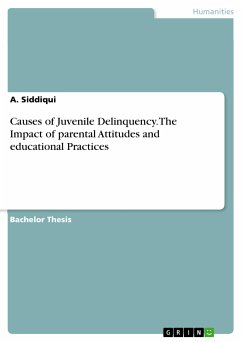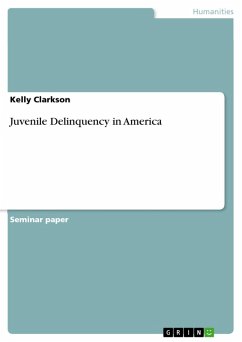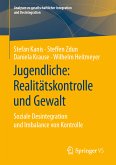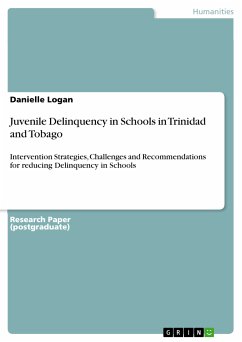Bachelor Thesis from the year 2019 in the subject Sociology - Law and Delinquency, grade: 1,7, University of Tubingen (Soziologie), language: English, abstract: The work deals with the question of what influence parental attitudes and educational practices have on the development of violent crime among adolescents. At the beginning the approach of juvenile delinquency is explained. This is followed by an empirical part in which the development of violence is explained. Then the connection to parent-child violence is described. Healthy upbringing and the associated learning of social skills at the individual level in the form of interpersonal interaction is very important. Such an education also has an indirect effect on the societal level, with institutions such as kindergartens and schools now also having a secondary role alongside parents. socialization instances play a formative role. As a rule, this ensures that children and adolescents are steered in the right direction and behave in accordance with society. However, not every young person is brought up well or healthily and this can have extensive consequences. Perhaps the worst consequence could be that they do not accept prosocial attitudes and values. Prosocial behaviour is desired by society and is in line with social and legal norms. Conversely, this leads to the assumption that antisocial behaviour could increase the likelihood of delinquent behaviour. Delinquent behaviour can have fatal consequences which can have extremely negative effects within society. This in turn leads to the question of which factors are responsible for criminal behaviour among young people.
Dieser Download kann aus rechtlichen Gründen nur mit Rechnungsadresse in A, B, BG, CY, CZ, D, DK, EW, E, FIN, F, GR, HR, H, IRL, I, LT, L, LR, M, NL, PL, P, R, S, SLO, SK ausgeliefert werden.









